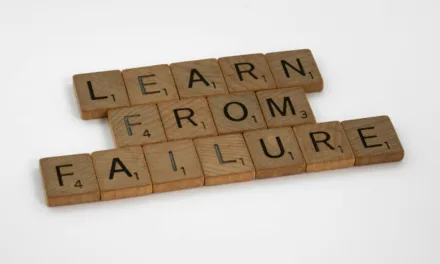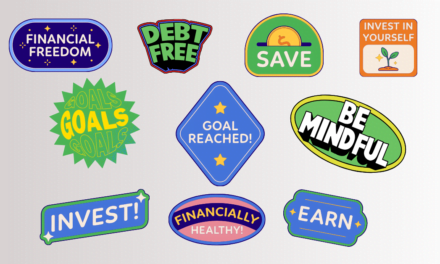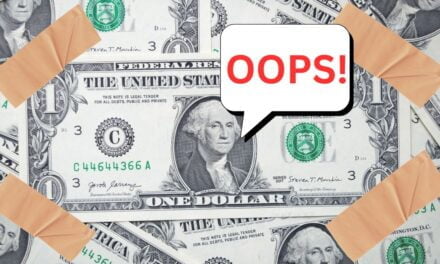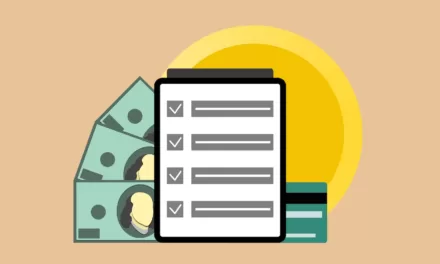Dave Ramsey has many fans and critics. We will go in-depth on his approach to personal finance, but first, our disclosure:
Disclosure: This post may contain affiliate links, meaning we earn a commission on purchases made through those links at no extra cost to you. As an Amazon Associate, I earn from qualifying purchases.
Disclaimer: The content on this site is for informational and educational purposes only and does not constitute financial, investment, legal, tax, or any other professional advice and should not be used as a substitute for professional advice. For more details, read our full Disclaimer.
Quick Overview of Dave Ramsey’s Baby Steps
In this post, we will have a comprehensive look at Dave Ramsey’s advice. We will explore what he gets right and where he may be off the mark. We will leave no rock unturned.
I listen to “The Ramsey Show” almost every day and have read the “Total Money Makeover” several times. So, before we take a deep dive into Dave Ramsey and his money advice, let’s look at his baby steps.
I will sum up his baby steps to getting out of debt with a free-flowing train of thought. So, here it is:
Your behavior needs adjusting. Debt is bad. Credit cards are horrible and should never be used. Save $1,000 fast. Get a detailed budget and make a plan. High or low interest rates, who cares? Just pay off your debt as quickly as possible using the debt snowball. Small wins become bigger wins. If you are not willing to sell anything not bolted down to pay off debt, don’t start. Next, get that fully funded emergency fund, then save 15% toward retirement. What is left over should go to your kids’ college fund and pay off your mortgage early. Don’t forget to give!
In full disclosure, I am debt-free except for my mortgage. I have managed to become debt-free by applying many of the principles Dave Ramsey teaches. However, I have never gone through the baby steps to get out of debt.
Learn More about Dave Ramsey
If you want to learn more about Dave Ramsey’s plan, The Total Money Makeover: A Proven Plan for Financial Peace is the book for it. I found The Total Money Makeover a quick and helpful read.
What Dave Ramsey Gets Right
Like him or dislike him, Dave Ramsey gets a lot of things right. His baby-step plan has helped millions of people get out of debt and take control of their finances. It is difficult to argue with the results even if you do not agree with everything about his approach.
Listening to his show for some time now has helped me better understand his baby-step plan and the advice he gives his followers. Dave Ramsey’s core message is excellent: Avoiding debt and saving money is the true way to build wealth. Debt destroys wealth with few exceptions, like a mortgage.
Let’s look at what he gets right, starting with how behavior impacts your money.
1. Behavior Speaks Louder Than Math
According to Dave Ramsey, behavior is the most important factor in achieving financial success, not math skills.
Dave Ramsey often says that personal finance is 80% behavior and 20% knowledge. His book, The Total Money Makeover, emphasizes fixing money-related behaviors instead of focusing on the math behind personal finance. The book outlines baby steps to help people get out of debt and develop good financial habits.
Many people call Dave Ramsey’s radio show seeking help with their debt. Life is expensive. It’s not uncommon for callers to have tens of thousands of dollars in student loans, car loans, and thousands of dollars in credit card debt. All the while, they are trying to put food on the table and pay their mortgage or rent. But, all these loans do not happen by accident.
In many cases, spending more than we make is a decision, not something that happens to us by chance. It’s often a choice to purchase things beyond our means, like an expensive new car. Although exceptional circumstances may lead to massive debt, those are exceptions, not the rule. I have listened to Dave Ramsey’s podcast long enough to recognize this.
Borrow First, Worry About Paying For It Later. This is the American Way!
One key takeaway from listening to “The Ramsey Show” is that many people make big financial decisions based on emotion, not math. They borrow first, then worry about how to pay for it later. When “later” arrives, they soon discover they could never afford the purchase in the first place. This theme repeats itself with many of the show’s callers.
One caller to the show, making $60,000/year, took out loans to purchase two cars. The car loans totaled $40,000. The monthly payment for these loans alone was close to $1,000. The monthly payments were destroying her finances, and she found herself in desperate need of financial help.
The main lesson is that knowledge and math alone cannot guarantee wise financial decisions. Ultimately, a person’s behavior greatly impacts their financial decisions and well-being. Our behavior often gets in the way of making smart money decisions.
Dave Ramsey and the Debt Snowball
Dave Ramsey’s approach focuses on changing the behavior that led you into debt. Rather than focusing on interest rates, his debt snowball method in baby step 2 prioritizes paying off smaller debts first to build momentum and alter behavior. Many people get up in arms over this approach. I find it somewhat incredible how upset some people get about this approach for two reasons.
The first reason is that the smaller balances are likely linked to high-interest debts, such as credit cards, short-term loans, or payday loans. The odds are that larger balances are associated with lower-interest debts, such as student or car loans. So, I bet most people end up paying off their debts from highest to lowest interest rates using the debt snowball, whether that is its intention or not.
The second reason is if you’re following Dave Ramsey’s financial plan, he recommends not staying in the second step for more than two years. As a result, interest rates become less important if you’re paying off all your debts (except for the mortgage) within that time frame. If you are paying off all of your debts outside of your mortgage that fast, then the interest rates on that debt become insignificant.
I have one word of caution.
If you are going to pause investments and saving to get out of debt, you better make short work of it. Otherwise, you run the risk of doing more harm than good. Taking time out from investing for an extended period of time can lead to financial troubles down the road.
To Dave Ramsey’s credit, you will often hear him say if you are not committed to following his plan with the intensity it deserves, don’t do it. He does not advocate for pausing investing for years on end.
Learn More
I highly recommend reading The Psychology of Money by Morgan Housel to better understand how behavior affects personal finance. This book sits at the top of my list of the best books on personal finance. Awareness of how behavior influences our decisions can empower us to make better choices about money and our investments.
Morgan Housel’s book is an excellent resource for understanding how our experiences influence financial behavior. It doesn’t seek to embarrass or criticize you for your decisions. Instead, it assists you in developing a better understanding of yourself and your connection with money. This is one of the most insightful books on personal finance I have ever read. I cannot recommend this book enough.
2. Get intense
Dave Ramsey’s plan is all about paying off your debt as fast as possible. We touched on this when discussing the debt snowball.
Dave Ramsey is right in that if you do a little here and a little there, you will never get out of debt. You cannot let it drag on for years on end. This is especially true if you pause investing to get out of debt. You must be all in, or do not do it.
Dave Ramsey knows this, which is why he stresses keeping your time in baby step 2 (paying off all debt, except mortgage) within a year or two. He calls this “gazelle intensity.”
Dave has a funny way of framing the intensity that his plan requires. You will hear him say, “Sell so much stuff; your kids think they’re next.” This phrase is also used to differentiate between a full-fledged “Dave” approach and a less rigorous “Dave-ish” option.
Achieving financial freedom and building wealth demands discipline and intensity. It’s easier to indulge in impulsive spending and take out loans than to plan and make sacrifices. The current culture promotes spending, but Dave Ramsey’s advice is on point – a focused and determined approach is necessary to avoid debt and attain wealth.
3. You need a budget
You may not want to hear this, but Dave Ramsey is right: You need a budget.
Let’s return to the caller, who is drowning in debt after taking $40,000 in car loans. Where did she go wrong?
The problem is the caller bought expensive new cars without running the numbers and knowing what they could afford. Not to mention, she was sinking all this money into a depreciating asset. While this may seem like common sense, our emotions often cloud our judgment and prevent us from making sound financial choices. It happens to all of us at one time or another.
An excellent way to counter our emotions is to have a budget. The budget will empower you to make smart financial decisions based on your unique situation. Dave Ramsey advocates for the envelope system and zero-based budgeting. There is no disputing that this is the most thorough approach to budgeting. But, while this method does work well, it may not be the best fit for everyone.
The key is choosing a method you will stick with that will provide enough details to be effective. If that’s tracking every expense down to the penny, great! But if you give up on this method as soon as you start, then try something else. There are several different budgeting methods you can try. Just make sure it is detailed enough for you and your circumstances!
4. Devise A Plan
If you listen to Dave Ramsey, I bet you have heard him say, “Adults devise a plan and follow it. Children do what feels good.” For people who do not like Dave Ramsey, that quote may be reason enough to never listen to Dave Ramsey and “The Ramsey Show.” I admit it is a little harsh, but Dave Ramsey is known for his tough love.
It may be a little harsh, but he is right. You need a plan.
The key is to set realistic goals that can be achieved that allow for changes as your priorities shift or the unexpected happens.
As you grow older, your goals and plans will evolve. For instance, in your twenties, you may be focused on graduating college, finding a job, and becoming independent from your parents. In your thirties, you may want to settle down, start a family, and consider buying a home. Having a basic plan is essential because making impulsive decisions can lead to financial and emotional distress. A plan will help you make informed decisions and be a beacon of light during rough seas.
Not having a plan is how the caller found herself with $40,000 in car loans. She would have known what she could have afforded if the caller had planned and budgeted for a car. I am sure it felt good to drive off with brand-new vehicles. But planning would have saved her from this costly mistake.
5. Build an Emergency fund
Dave Ramsey is right: You need to have an emergency fund.
Some people dislike Dave Ramsey so much that they even take issue with one of the most basic principles of money management. You would think this would be the one piece of advice everyone can agree on. Nope. Believe it or not, I have seen YouTube videos disputing this advice from Dave Ramsey.
I saw one video in which a person blasted Dave Ramsey because his debt snowball does not consider interest rates. Then they turn around and say people do not even need an emergency fund. What I heard next might be the most ridiculous statement ever. This person said a credit card is your emergency fund.
He used derogatory words to describe Dave Ramsey and his debt snowball because it did not take into account interest rates. Yet, they advocate using credit cards as emergency funds with interest rates of 20% or more. How will anyone pay off credit cards at 20% interest if they have no emergency fund? It only perpetuates the cycle of debt.
Here is the thing. The only guarantee in life is that the unexpected will happen. It is called risk. No one has a crystal ball. It would be best if you protected yourself from the unexpected so it does not derail your financial future. The only way to do that is by having adequate savings to cushion the blow when all heck breaks loose. Having your credit card as your emergency fund is a bad idea. That will drive you further into debt at interest rates destined to make it challenging to pay off.
How big should Your emergency fund be?
The general rule of thumb is to have 3 to 6 months of expenses in an emergency fund. However, it does not mean you cannot have more if that helps you sleep at night. Many will argue that you miss out on higher returns if you have too much cash. That is both true and false.
It would be best to weigh your cash position against your financial picture. 3 to 6 months in expenses is a great starting point. However, as you accumulate wealth, you may need to increase that number. In fact, as your wealth increases, you may want to consider your cash position as a percentage of your wealth, not an amount based only on monthly expenses.
For instance, if you have a net worth of $750,000, you may decide to keep 10% or $75,000 in cash rather than 3 to 6 months of expenses. This is not to say you should have 10% or more in cash. My point is the greater your wealth, the more you have to lose. This is especially true if you work in a highly volatile field. So, it would be good to balance risk and reward. (Also, make sure you have adequate insurance! Don’t skimp out on higher liability coverages to save money).
Always remember, your cash helps to guard against risk. During a financial crisis, having cash on hand can prevent significant monetary troubles. The value of your cash becomes much more significant than the interest rate you were earning if it prevents you from incurring more debt, liquidating your investments, or using your retirement savings to cover expenses.
6. Live Like No One Else
If you listen to the Dave Ramsey show, you will often hear him say, “Live like no one else, so later you can live like no one else.” This is a profound statement.
To build wealth, you need to make the sacrifices and tough decisions today so that later in life, you can live like no one else. You do this by prioritizing saving rather than spending and not keeping up with the Joneses. Doing the little things today can make all the difference later on.
Always remember that wealth is the money you do not spend. Saving and investing early and often, as well as avoiding debt, is the way to wealth.
Where Dave Ramsey May Be Off the Mark
We just spent a lot of time reviewing where Dave Ramsey is right. Now, we will shift gears and see where Dave Ramsey’s advice may fall short for some people.
1. Invest in actively managed mutual funds
Dave Ramsey recommends actively managed mutual funds, even though these funds have been shown to underperform their index over 80% of the time. So, this approach may not be the best way to invest, as the added expenses and underperformance, combined with compounding, may erode returns over time.
Furthermore, Dave Ramsey says that it is easy to pick winning actively managed mutual funds. However, the reality is quite different. Selecting actively managed mutual funds that perform better than the market is similar to choosing individual stocks. Based on numerous studies, there is no getting around the fact that over 80% of actively managed mutual funds fail to perform as well as their index.
There are many low-cost options available, such as index funds, that could be a better choice. While actively managed mutual funds may have a place in your investment portfolio, having them make up most of it may not deliver you the best results. Most individuals will likely benefit more from allocating their investments across low-cost index funds such as a total market, S&P 500, international, and total bond market index funds.
Learn More
I highly recommend The Little Book of Common Sense Investing: The Only Way to Guarantee Your Fair Share of Stock Market Returns by John C. Bogle. John C. Bogle founded The Vanguard Group and is credited with creating the first index fund. The Little Book of Common Sense Investing shows how a simple low-cost S&P 500 index fund might be the smartest, most powerful, wealth-generating investment someone can make.
2. Never Use Credit Cards. Dave Ramsey Doesn’t
It’s no secret that credit card debt is a major problem in the United States, with many Americans struggling with overspending and accumulating considerable debt. According to recent reports, the collective credit card balance in the country has surpassed $1 trillion, an alarming amount.
So, you can see why Dave Ramsey advocates for never using credit cards. There is nothing inherently wrong with his advice. However, I’m afraid I have to disagree with the idea that credit cards are always terrible and that they should never be used.
Many people use them responsibly, save money, and limit their impulsive purchases. Millions of people pay them off in full every single month. I am one of them. We may not be in the majority, but we do exist.
Of course, some individuals may find using only cash and debit cards helpful in getting out and staying out of debt. If you fall in this group, then great. You should be commended for getting out of debt. There is no doubt using cash lowers the amount people spend and prevents them from spending money they do not have.
The main reason I prefer credit cards over debit cards is the security they offer. I know Dave Ramsey says that is not true, but I have a hard time believing that debit cards are as safe as credit cards.
Although both provide fraud protection, there are some important differences to consider. If there are erroneous charges on your credit card, you can dispute the charges without money ever leaving your bank account. However, with a debit card, the money is immediately deducted from your bank account, leaving you fighting with your bank to get the money back. It is for this reason I stick with credit cards.
3. 15-Year mortgage
Dave Ramsey says you should only take out a 15-year fixed mortgage and never do a 30-year one. With rising mortgage rates and home prices at record highs, how many people can afford a 15-year fixed mortgage?
Also, home inventories are currently low. Choosing a 15-year fixed mortgage over a 30-year one may further limit your options. You will qualify for a smaller loan since your monthly payments are higher on a 15-year fixed mortgage than on a 30-year fixed mortgage.
If you can afford a 15-year mortgage and want to do it, then by all means, go for it. But buying a home is not like buying a car. Unlike a car, it should appreciate in value and eventually outpace what you paid toward it if held long enough. This leads us to Dave Ramsey’s other advice: to pay off your mortgage early.
4. Paying Off Your Mortgage Early
Dave Ramsey lists paying off your mortgage early as the sixth step in his seven-step total money makeover plan. Ramsey’s plan caps your retirement savings rate at 15% once you have paid off all your debts besides your mortgage. From there, his plan has any extra money not going to fund other obligations, like a 529 plan, toward paying off your mortgage.
This should not be a hard, fast rule. It all comes down to personal preference. Based on math, most financial advisors will advise against paying off your mortgage early. I would not be able to sleep at night knowing I was only putting 15% toward retirement when I could be saving more.
In the end, do not pay off your mortgage early just because a book suggests it as the next step in your financial journey. Paying off your mortgage early for the sake of doing so is not a plan. You need to make sure it aligns with your long-term financial goals. Create deadlines, put numbers to it, and then step back and see if it makes sense.
Ultimately, you have to determine what holds greater value to you. Is it the peace of mind of knowing your house will be paid off quicker? Or is it maximizing your rate of return on investments and savings?
5. Start with $1,000
Dave Ramsey starts his baby steps by advising you to save $1,000 quickly and then start paying off your debt. Once your debts are paid off, besides your mortgage, then shift back to building a 3 to 6-month emergency fund. The advice to save $1,000 has not changed throughout the years, even though inflation has driven up costs.
The Total Money Makeover came out in 2003. So, based on inflation, I think that number should be around $1,600 today. From listening to Dave Ramsey, he wants people to move on to step 2 fast and start paying down their debt. This first step gives someone a quick win, but still, $1,000 in 2003 is the equivalent of $600 today.
I have a difficult time accepting that $1,000 is enough for a mini emergency fund. I wish he would consider tying that number to inflation.
6. One size fits all Dave Ramsey Approach
One-size-fits-all strategies rarely fit everyone. There is no doubting the destructive power of debt and the need to avoid it. But our views on money are shaped by our experiences and different starting points.
Personal finance is personal. Dave Ramsey does not know the details of your finances, your dreams, or your goals. This blog, Crash Test Money, does not know who you are and your financial situation. That goes for anyone on YouTube or Facebook giving investment and money advice.
Dave Ramsey’s baby-step approach offers many people hope and a detailed plan to reach financial independence. However, before making any decisions, it’s important to conduct research and make informed choices that work for you and your family. Mindlessly following advice without due diligence can lead you down the wrong path.
Final Thoughts On The Dave Ramsey Method

There is no denying that Dave Ramsey has helped millions of people get out of debt. Not everyone is going to agree with his approach. Don’t let that stop you from getting a different perspective on money management. You might find that one piece of information that is valuable to you.
I believe Dave Ramsey offers a lot of good advice on getting out and staying out of debt. Otherwise, I would not listen to his show as often as I do. However, not all of his suggestions will apply to you. You may find at times that you wholeheartedly disagree with his guidance. There is nothing wrong with that.
Personal finance is based on the individual. It all comes down to your financial goals, unique situation, and what you want to achieve with your money. It is always a good idea to question the opinions you hear and to research them further.
Above all else, be open-minded and think for yourself.






